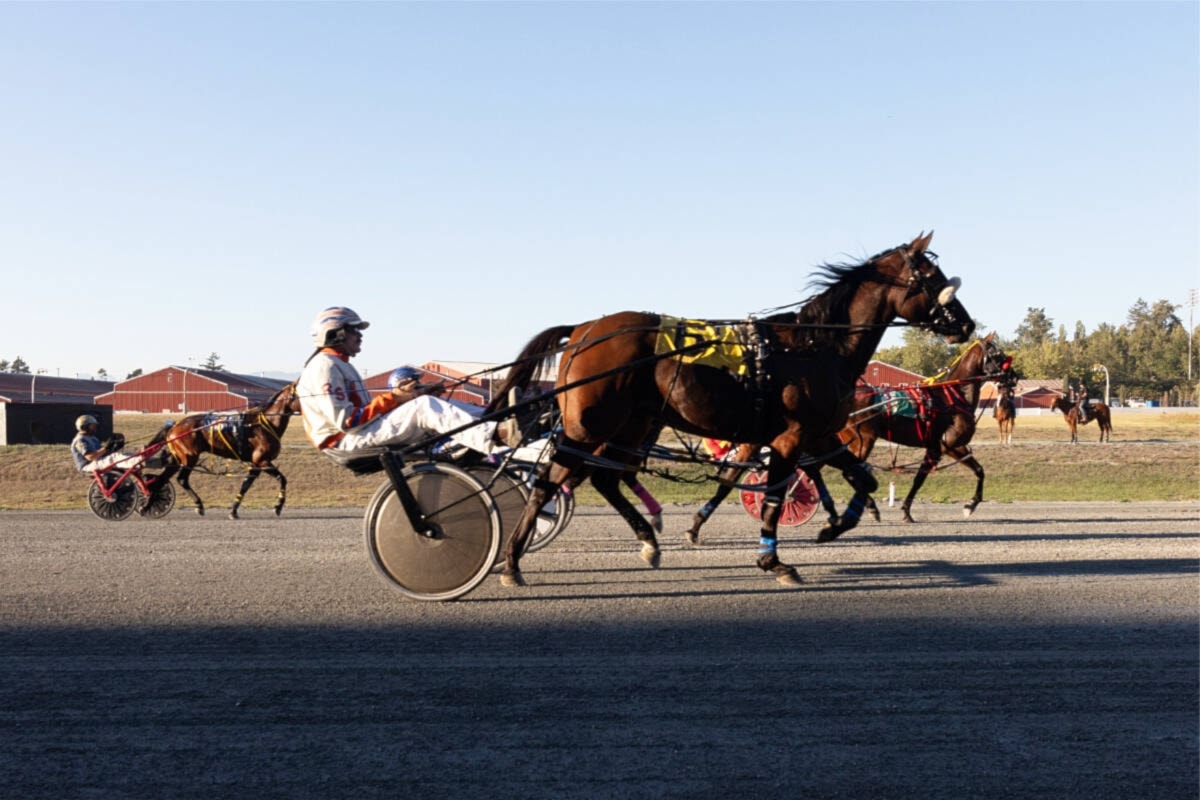The abrupt closure of Fraser Downs harness racing track in Surrey came as a shock to many.
The Cloverdale racetrack, which has been in operation since 1975, attracted thousands of patrons over the years and has been an essential economic driver in supporting numerous other horse and agriculture-related businesses.
The City of Surrey has cancelled the lease to Fraser Downs of the track, backstretch and barns. The remainder of the Elements casino operation, which uses the grandstand, will remain in operation.
Harness racing has a long history in B.C. Prior to the establishment of Cloverdale Raceway, it had been centred around Paterson Park in Delta.
Surrey sought out an experienced operator to bring background knowledge and deep pockets when the decision was made to boost economic development by bringing harness racing to the fairgrounds in Cloverdale. Orangeville Raceways from Ontario fit the bill, and under the direction of three generations of the Keeling family, it worked very well for many, many years.
The establishment of the track led to a much-needed upgrade and expansion of the grandstand, establishment of a very popular restaurant, construction of five new barns and regular racing events in the fall, winter and spring months. Standardbred horse owners and trainers flocked to the area, with many buying or renting farms in Surrey, Delta and Langley. Orangeville Raceways even operated another harness racing track in Sidney on Vancouver Island for several years, which created more opportunities for B.C. horse breeders, trainers and drivers.
When Cloverdale Raceway set up shop 50 years ago, legal gambling in B.C. was very limited, and operated under very strict supervision. Other than the thoroughbred racing track at the PNE grounds in Vancouver, gambling in the mid-70s consisted of occasional lotteries. B.C. did not even have its own lottery corporation – the four western provinces co-operated in operating a very modest lottery.
Of course, there was illegal gambling. For many years, the Irish Hospital Sweepstakes was one of the biggest games around, and while it was illegal to buy tickets, many people did. There was also legal gambling in Nevada, and regular bus tours to Reno were particular favourites with B.C. residents.
I recall an interview I did for The Leader with Jim Keeling Jr. in the early 1980s, at a time of a deep recession and high inflation. I asked him if gambling was affected by tougher economic times. He said “No.” He went on to explain that people enjoyed gambling as a social pastime, and many would not only continue to do so but might even boost their betting activity, in the hope that their horse would come in.
Of course he was correct. However, when the B.C. government greatly increased gambling by licensing casinos in the 1990s, it made things much tougher for racetracks. Now there were many more options for bettors.
Some cities, including Surrey, resisted casinos for a long time, but now they can be found throughout the province. Online gambling has taken a large slice of gaming dollars in recent years.
Meanwhile, all the expenses involved in raising and training horses have gone up dramatically. If the racetrack doesn’t attract big crowds, it is hard to stay in business.
Surrey seems to have other ideas for the more than 12 acres which were used for the racing operations. Mayor Brenda Locke said the city wants to revitalize both the fairgrounds and Cloverdale and thus wants to go into a different direction. In her statement, she also paid tribute to the long history of horse racing in Surrey and the many people involved with it.
Many people would echo that statement. A unique Surrey institution is gone.
Frank Bucholtz writes twice monthly on political issues for Black Press Media publications.

